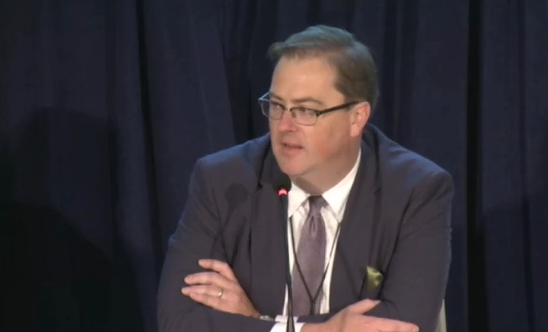
On June 4th, Dr. Matthew Mehan participated in the Federal Trade Commission’s panel titled, The Attention Economy: How Big Tech Firms Exploit Children and Hurt Families. Below are selected quotes from his remarks on the nature of technology, how society views technology and how it ought to be viewed, and an explanation of his idea called “digital trespass.”
“The point of tech is actually to help us become more human. It's to fulfill our nature— that's the purpose of it. If you take that as the foundation itself, then you ask, 'Okay, tech with regard to children: I don't want it to get in the way of developing any of their natural capacities.' Those are not just virtue, those are skills, talents, bodily and psychological health and wellbeing. Once you start down that road, a number of decisions start to be made more easily.
Digital media is fundamentally receptive. That is to say, you set yourself to receive. You are a passive agent receiving something from that screen most of the time.
We are developing active conditions, virtues. Digital media is a little cherry on top of an ice cream cone at the end of hard day's labor, but we're using it today as this cyborg sort of mesh: 'it's going to be part of our nature.' And that's incorrect. We need to create space in the home, in education, and in the tech policy world so that children can grow into the fullness of their nature and then use tools to defend and complete that [nature]. I think it's a first and then a second, but we're trying to do both at the same time.
We've seen technology change so many times with AI, we're suddenly going to see verbal gifts highly prized for the ability to develop software. Java and Python are now useless. There's a certain amount of developing human nature that goes to the fundamental arts of communication, of logic, of reasoning, geometry, mathematics. If you study those, you're going to be better attuned to adapt and develop and work with the next type of technology. You will also have the virtues to use: industry, prudence, wit, art...
There's a certain kind of panic that Big Tech gives parents: 'your child will be cut out of the next economy.' But if they're enslaved by...habituation to today's tech, that's exactly what they will be: cut out of the next generation's economy.”
“There's something that, once established, can become the field on which new policies can be made, which is digital presence in the home. We … have adopted the language of Big Tech. They set the syntactical framework for us and that's a problem. 'Kids go online.' But no, they don't. They open a screen and a bunch of people present themselves in their home, bedroom, hand, couch.
If I had a home security system and somewhere buried in their contract was that this guy can get on the intercom and talk to my kid on the upstairs security panel without my permission, I would lose it. But we say: 'he did it, he went online.' Did he, though? Did the child go online? Or did that guy come into my home and present themselves digitally to my child, which I do not permit?
I think once you start getting there, you have private property questions and a kind of violation of the home. This allows you to start laying an ethic down, for instance, with texting. If I found out that a young man was digitally present in my daughter's bedroom on her phone at 11 o'clock at night, I would be somewhat irritated (this is why we don't allow phones in the bedroom). You can't and shouldn't be digitally present in someone else's home after hours.
There's a lot of work to be done in the conceptual framing that Big Tech just plopped down on us because they controlled the space and we set ourselves to receive. But we have to start being more active….”
To watch the full panel, click here. To watch Dr. Mehan’s full remarks, begin at 5:26:47 and end at 6:26:42.